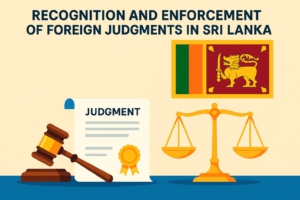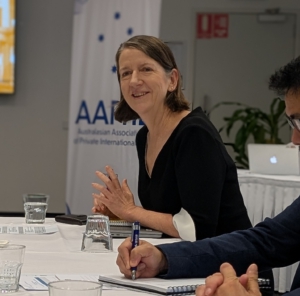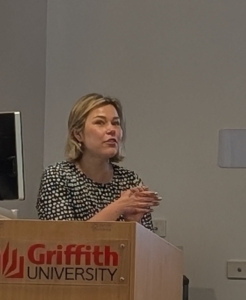Written by Tarasha Gupta, BALLB (Hons), Jindal Global Law School, and Saloni Khanderia, Professor, Jindal Global Law School (India)
The Singapore International Commercial Court (“SICC”) has become a preferred hub for hearing litigation and arbitration of international commercial disputes. Accordingly, many decisions from the SICC require recognition and enforcement in India.
In this light, a recent judgment from the Delhi High Court (“HC”) is a significant development providing relief to those wishing to enforce the SICC’s judgments in India. In Discovery Drilling Pte Ltd v. Parmod Kumar & Anr,[1] the HC has held that the SICC is a superior court under Section 44A of the Code of Civil Procedure, 1908 (“CPC”). As a result, its judgments can be directly executed in India. That said, the HC ultimately held the judgment in question to be unenforceable, as it failed to meet the tests in Section 13 of the CPC.
This article breaks down the arguments and legal context behind the HC’s judgment. It also highlights how the case demonstrates flaws in India’s regime, which create difficulties not just for creditors trying to enforce foreign judgments in India, but also in enforcing India’s judgments abroad.
Legal Background
The procedure for execution of foreign judgments is prescribed under Sections 13, 14, and 44A of the CPC. Recognition and enforcement of foreign judgments is based on the doctrine of obligation. Accordingly, no foreign judgment can be recognised in India unless the judgment-creditor proves to the Court that the judgment-debtor owes it an obligation to pay a sum of money under the law of the foreign state where the judgment was pronounced. This obligation is given effect in India among the creditor’s initiation of fresh legal proceedings before the Indian court through an action in debt.
Some courts are nonetheless conferred with reciprocating status under Section 44A of the CPC. Thus, judgments of “superior courts” from 12 notified jurisdictions, including Singapore, are typically entitled to automatic enforcement if they otherwise satisfy the requirements of Section 13, under which the foreign court must be shown to be internationally competent – both directly under its own law and indirectly, under Indian private international law. While Section 13 provides multiple grounds for determining whether a judgment is conclusive, including considering the merits of the case.[2], the key pillar is considering whether the court had the competency to rule on the case. As a general rule, a foreign court is considered competent if it is entitled to summon a defendant and subject it to its jurisdiction. This is decided by considering inter alia whether the judgment-debtor was a subject or resident of the country at the time of the proceedings, or had otherwise submitted to the jurisdiction of that court.
Factual Background in Discovery Drilling
The petitioner is a joint venture between a company incorporated under Singaporean law, and Jindal Drilling & Industries Limited (“JDIL”), a company incorporated under Indian law. The respondents were employees of JDIL who acted as representatives of the petitioner for an agreement with ARKO Group DMCC (“ARKO”) to repair a rig.
Certain disputes and differences arose between the petitioner and ARKO, leading ARKO to initiate recovery proceedings against the petitioner in the High Court of Singapore. The case was subsequently transferred to the SICC, before which the petitioner filed its counterclaim. The second amendment to this counterclaim arrayed the respondents as defendants, alleging breach of contract, breach of fiduciary duties, and fraud. The petitioners claimed it served the respondents with all notices issued by the SICC and subsequent proceedings. However, the respondents never entered appearance before the SICC.
Finally, the SICC passed the subject judgment in favour of the petitioner. Therefore, the petitioner filed the present petition seeking enforcement of the judgment against the respondents.
Applicability of Section 44A of the CPC
The Delhi HC considered three things in deciding if Section 44A of the CPC applies to judgments from the SICC.
First, the HC considered whether the SICC is a “superior court” under Section 44A. The Court noted that by a Gazette Notification, the Central Government had declared the High Court of Singapore as a “superior court”. Since the SICC was created as a Division of the High Court of Singapore, the jurisdiction of the SICC is only a subset of the jurisdiction of the High Court and did not take up a new jurisdiction. Therefore, SICC can equally be treated as a superior court.
Second, the HC considered the respondents’ contention that the SICC was not a “court”. The respondents argued that the SICC does not have the trappings of a court, inter alia because it is not dependent on the concept of territorial jurisdiction, the normal rules are not applicable to it, and foreign judges can serve as judges. The HC rejected this argument, noting that the SICC cannot be denuded of its status as a “court” merely because it follows a different procedure.
Third, it was contended that for an application to be maintainable under Section 44A, it must be accompanied by a certified copy of the decree with a certificate from the superior court that passed the decree stating the extent to which the decree has been satisfied or adjusted. The petitioner in this case had not submitted such a certificate. Instead, they submitted an email issued by the SICC stating that the Rules of the Court do not provide for issuance of a certificate of non-satisfaction of a decree. It further confirmed that the subject judgment had not been appealed. The HC noted that the CPC does not provide a form in which the certificate under Section 44A(2) has to be framed, and therefore the email could be considered a ‘certificate’.
Tests Under Section 13 of the CPC
Despite holding that judgments of the SICC may be enforced as judgments of a “superior court” under Section 44A of the CPC, the Delhi HC ultimately held the subject judgment as unenforceable as it failed to pass the tests under Section 13 of the CPC. Specifically, the court held that the SICC did not have jurisdiction (as required by Section 13(a)) to hear the case at hand, for two reasons.
First, the respondents alleged that their consent to the SICC’s jurisdiction was not taken. They contended this was a pre-requisite for the SICC to take up jurisdiction. The Delhi HC considered the Supreme Court of Judicature Act, 1969 and Rules of the Court, to conclude that the SICC requires the parties to submit to its jurisdictions. The respondents did not accede to the SICC’s jurisdiction (as they were not parties to the original proceedings by ARKO against the petitioners) and also were not subjected to the jurisdiction of the High Court or Supreme Court as they were not residents of Singapore. The SICC could not have assumed jurisdiction against them without their consent.
Second, the SICC has jurisdiction to hear only commercial disputes. Section 18D of Singapore’s Supreme Court of Judicature Act, 1969 vests the SICC with jurisdiction to adjudicate disputes that are “international and commercial in nature”. Rule 1(2)(b) of Order 110 of the Rules of the Court define a claim to be “commercial in nature” when the subject matter of the claim arises from a relationship of a commercial nature. This includes transactions for the supply of goods, distribution agreements, joint ventures, etc.
The HC held that the subject matter of the claim at hand was the respondents’ breach of alleged fiduciary duties, which is an action in tort, based on fraud. Therefore, it deemed the petitioners and respondents to not have a commercial relationship, and consequently, the dispute was not “commercial in nature” and the SICC had no jurisdiction to adjudicate it.
Hence, the respondents met the exception under Section 13(a) of the CPC. The judgment was held to not be conclusive, as the SICC did not have jurisdiction over the matter. Apart from contesting the SICC’s jurisdiction, the respondents made two other arguments that the subject judgment failed the various tests under Section 13, both of which were dismissed.
First, a judgment must be given on the merits of the case as a condition under Section 13(b). Relying on this, the respondents alleged that the subject judgment was not passed on the merits of the case, especially considering it was passed ex parte. The HC dismissed this argument, observing that the SICC did not merely pass a formal order by way of the respondent’s absence, but instead had examined the evidence and considered the truth of the plaintiff’s claims before making its decision.
While the argument under Section 13(b) was not accepted, generally, the requirement of a merits review has had the unfortunate implication of making Indian judgments unenforceable in many parts of the world, as India is seen as imposing harsher conditions for enforcement. This means countries that rely on reciprocity and equality of treatment for enforcement, including many of India’s leading trade partners such as Germany, Japan, South Korea, and the US, do not recognise or enforce Indian judgments. This has adverse implications on the internationalisation of India’s judicial system, as it compels litigants to resolve their disputes before other countries’ courts to ensure enforcement, or to rely on arbitration.[3]
The second argument raised in this case was rooted in the requirement that the proceedings in which the judgment was obtained must not have been opposed to natural justice, per Section 13(d). The respondents alleged that they were denied their right to natural justice as they were not served with notice of the counterclaim in accordance with the laws of India. The HC considered that a mere procedural irregularity in the service of summons would not detract from a foreign judgment’s conclusiveness under Section 13, as procedural law cannot trump substantive rights.
Conclusion and Implications
With the creation of many special courts for international commercial disputes around the world, the case is an important precedent for the value of these court’s judgements and their recognition in India. Though the HC finally held the subject judgment unenforceable, the recognition of the SICC as a “superior court” under Section 44A has crucial implications for the ease of enforcing the court’s judgments in India in the future. The HC’s clarification on the nature of the certificate requirement under Section 44A(2) is equally significant for foreign courts which do not have provisions for such certificates in their rules. This is significant, considering District Courts all around India can hear cases of enforcement of foreign judgments under Section 44A. Notably, just last week, a District & Sessions Court in Haryana applied Section 44A to recognise a judgment from a Bangladeshi court.[4]
Simultaneously, the HC’s observations on the tests of Section 13 highlight the lingering difficulties with enforcing judgments even from reciprocating territories, as there are several exceptions the Indian court may consider. Specifically, the judgment highlights the importance of the foreign court having jurisdiction over the matter, to be ascertained as “competent” under Section 13(a). However, this section should ideally specify the grounds on which foreign courts will be construed as internationally competent, to ensure predictability and reduce the unnecessary anxieties that creditors currently experience while seeking execution of foreign judgments in India.
The Court’s findings on Section 13(b) are equally demonstrative of how the provision makes enforceability of Indian judgments difficult in other jurisdictions. The language of Section 13(b) suggests that Indian courts conduct a merits review of foreign judgments for their enforcement. However, as this case demonstrates, in reality, Section 13(b) is only used to ascertain whether the foreign judgment is procedurally sound under the requirements of Indian law. Under Indian law, a merits review does not entail a test of the propriety of the facts or the law applied by the rendering court. All the court does is ascertain if evidence is examined by the rendering foriegn court. Nonetheless, this requirement has been interpreted as a lack of reciprocity in many countries requiring the enforcement regime of the rendering court to be similar to theirs.[5] Therefore, the time is ripe for India to reword Sec 13(b) through an amendment since the Indian courts are anyways not conducting merits review despite legislative intent to the contrary. Moving forward, the CPC which regulates enforcement of foreign judgments should also clarify the grounds on which foreign courts will be construed as internationally competent under Section 13(a) to ensure predictability and reduce the unnecessary anxieties that creditors currently experience while seeking execution of assets situated in India.
[1] 2025 SCC OnLine Del 1075.
[2] Namely, the judgment (a) must be pronounced by a Court of competent jurisdiction; (b) must be given on the merits of the case; (c) must not be founded on an incorrect view of international law or a refusal to recognise the law of India in cases in which such law is applicable; (d) the proceedings in which it was obtained must not be opposed to natural justice; (e) must not be obtained by fraud; and (f) must not sustain a claim founded on a breach of any law in force in India.
[3] Saloni Khanderia, ‘Thorn in the Lion’s Paw: Révision au fond as India’s Self-Inflicted Injury in the Recognition and Enforcement of Foreign Judgments’ (forthcoming, 2025) Asian Journal of Comparative Law.
[4] Shahriar Noor Tutul & Ors. v. Rajvir Singh & Ors., Execution Case No. RBT-86-2020.
[5] Saloni Khanderia, ‘Thorn in the Lion’s Paw: Révision au fond as India’s Self-Inflicted Injury in the Recognition and Enforcement of Foreign Judgments’ (forthcoming, 2025) Asian Journal of Comparative Law.





 considered ‘Prenuptial Agreements: Comparative Perspectives from France, Australia and Hong Kong’.
considered ‘Prenuptial Agreements: Comparative Perspectives from France, Australia and Hong Kong’. 
 On February 14th and 15th, 2025, more than one hundred young academics gathered at Heidelberg University for the 5th German Conference for Young Researchers in Private International Law to discuss the topic “Digital Transformation and Private International Law – Local Connections in Boundless Spaces”. The conference was organized by Andreas Engel, Sophia Schwemmer, Felix Berner, Aron Johanson, Markus Lieberknecht, Ann-Kathrin Voß, Charlotte Wendland and Anton Zimmermann.
On February 14th and 15th, 2025, more than one hundred young academics gathered at Heidelberg University for the 5th German Conference for Young Researchers in Private International Law to discuss the topic “Digital Transformation and Private International Law – Local Connections in Boundless Spaces”. The conference was organized by Andreas Engel, Sophia Schwemmer, Felix Berner, Aron Johanson, Markus Lieberknecht, Ann-Kathrin Voß, Charlotte Wendland and Anton Zimmermann. The last presentation was delivered by Adrian Hemler (University of Konstanz), who illustrated options and boundaries of a fully digital judicial activity from abroad. Hemler reported a trend towards virtual and digital proceedings, asserting that these developments can only be expected to accelerate. The advantages in virtual proceedings lie in more efficiency, lower costs as well as in making the profession of judge more flexible and, hence, more attractive. While Hemler found possibly affected principles of German procedural law to be publicity, immediacy and orality, he assessed that their violation can be avoided. However, Hemler explained the currently prevailing opinion to be that working from abroad as a judge violates the foreign country’s sovereignty. Hemler went on to reference Kelsen, who understood what ought to be at the core of law – not what is. Building on this, Hemler differentiated between on the one hand the scope of application of legal norms, which operates on the level of what ought to be. This category does not violate foreign sovereignty, even when it extends beyond a state’s territorial borders. On the other hand, Hemler allocated the practical implementation and enforcement of legal rules on the level of what is. Hemler argued that this latter category should only be allowed with the other country’s permission – otherwise, Public International Law violations can arise. Within this grid, according to Hemler, rendering judgements from abroad does not interfere in the foreign state’s sovereignty.
The last presentation was delivered by Adrian Hemler (University of Konstanz), who illustrated options and boundaries of a fully digital judicial activity from abroad. Hemler reported a trend towards virtual and digital proceedings, asserting that these developments can only be expected to accelerate. The advantages in virtual proceedings lie in more efficiency, lower costs as well as in making the profession of judge more flexible and, hence, more attractive. While Hemler found possibly affected principles of German procedural law to be publicity, immediacy and orality, he assessed that their violation can be avoided. However, Hemler explained the currently prevailing opinion to be that working from abroad as a judge violates the foreign country’s sovereignty. Hemler went on to reference Kelsen, who understood what ought to be at the core of law – not what is. Building on this, Hemler differentiated between on the one hand the scope of application of legal norms, which operates on the level of what ought to be. This category does not violate foreign sovereignty, even when it extends beyond a state’s territorial borders. On the other hand, Hemler allocated the practical implementation and enforcement of legal rules on the level of what is. Hemler argued that this latter category should only be allowed with the other country’s permission – otherwise, Public International Law violations can arise. Within this grid, according to Hemler, rendering judgements from abroad does not interfere in the foreign state’s sovereignty.